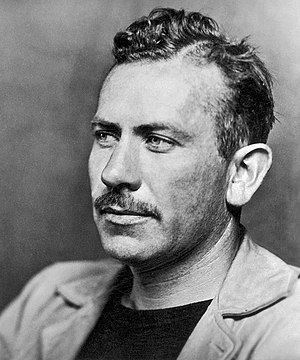
“There are times that one treasures for all ones life, and such times are burned clearly and sharply on the material of total recall. I felt very fortunate that morning.”
Share this quote:
“Mr. Trask, do you think the thoughts of people suddenly become important at a given age? Do you have sharper feelings or clearer thoughts now than when you were ten? Do you see as well, hear as well, taste as vitally?”
Share this quote:
“Theres more beauty in truth, even if it is dreadful beauty.”
Share this quote:
“Sometimes, a lie is told in kindness. I dont believe it ever works kindly. The quick pain of truth can pass away, but the slow, eating agony of a lie is never lost.”
Share this quote:
“A man with a beard was always a little suspect anyway. You couldnt say you wore a beard because you liked a beard. People didnt like you for telling the truth. You had to say you had a scar so you couldnt shave.”
Share this quote:
“Almost instinctively he went about learning the truth and at the same time disbelieved it.”
Share this quote:
“I guess were all, or most of us, the wards of that nineteenth-century science which denied existence to anything it could not measure or explain. The things we couldnt explain went right on but surely not with our blessing. We did not see what we couldnt explain, and meanwhile a great part of the world was abandoned to children, insane people, fools, and mystics, who were more interested in what is than in why it is. So many old and lovely things are stored in the worlds attic, because we dont want them around us and we dont dare throw them out.”
Share this quote:
“Benar. Kita tak pernah lagi menjumpai kebahagiaan yang setara dengan kebahagiaan masa kanak-kanak kita. Pablo mengangguk sedih.”
Share this quote:
“Casy said solemnly, This here ol man jus lived a life an just died out of it. I dont know whether he was good or bad, but that dont matter much. He was alive, an thats what matters. An now his dead, an that dont matter...”
Share this quote:
“Death is a personal matter, arousing sorrow, despair, fervor, or dry-hearted philosophy. Funerals, on the other hand, are social functions. Imagine going to a funeral without first polishing the automobile. Imagine standing at a graveside not dressed in your best dark suit and your best black shoes, polished delightfully. Imagine sending flowers to a funeral with no attached card to prove you had done the correct thing. In no social institution is the codified ritual of behavior more rigid than in funerals. Imagine the indignation if the minister altered his sermon or experimented with facial expression. Consider the shock if, at the funeral parlors, any chairs were used but those little folding yellow torture chairs with the hard seats. No, dying, a man may be loved, hated, mourned, missed; but once dead he becomes the chief ornament of a complicated and formal social celebration.”
Share this quote:
“It seems to me that if you or I must choose between two courses of thought or action, we should remember our dying and try so to live that our death brings no pleasure to the world.”
Share this quote: